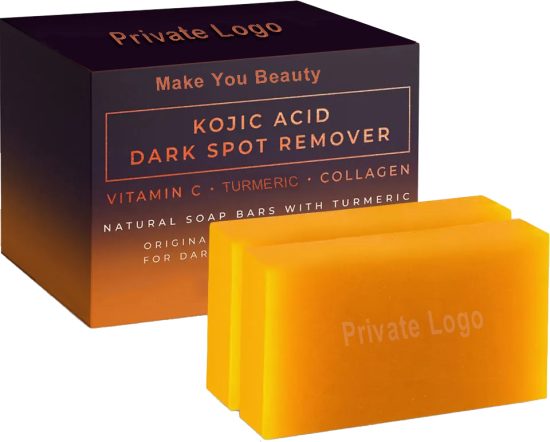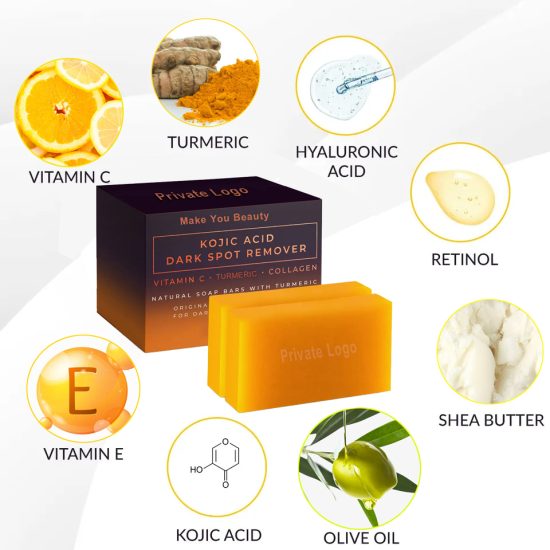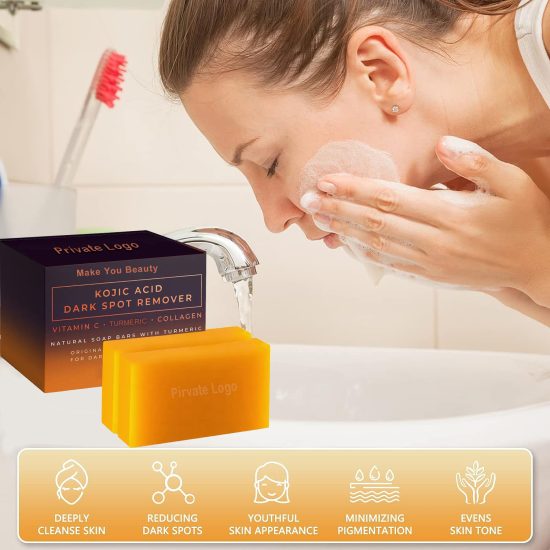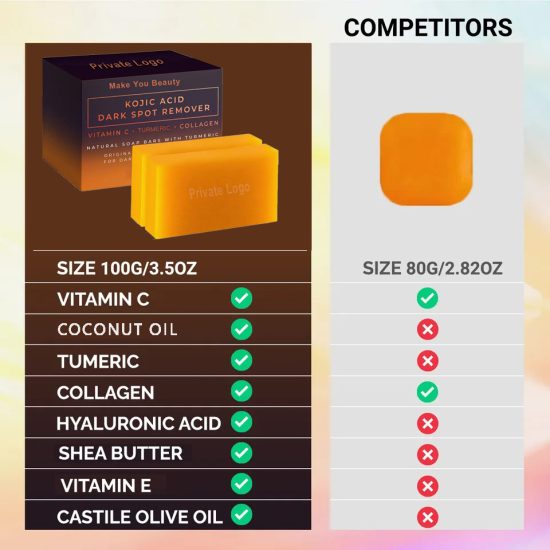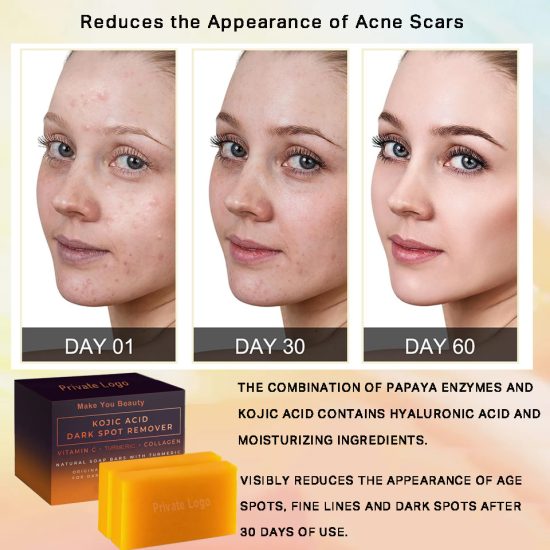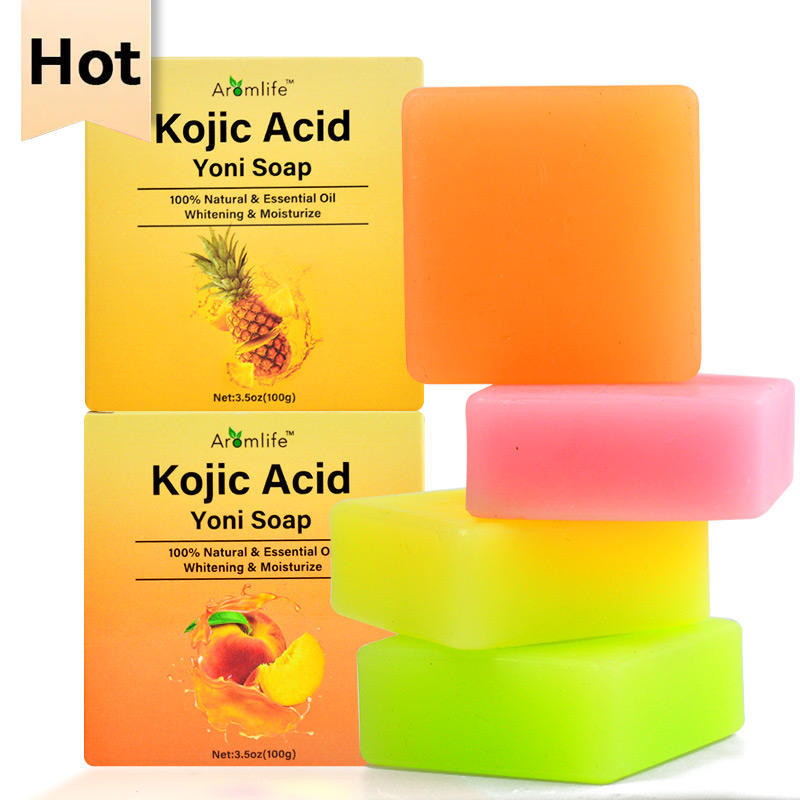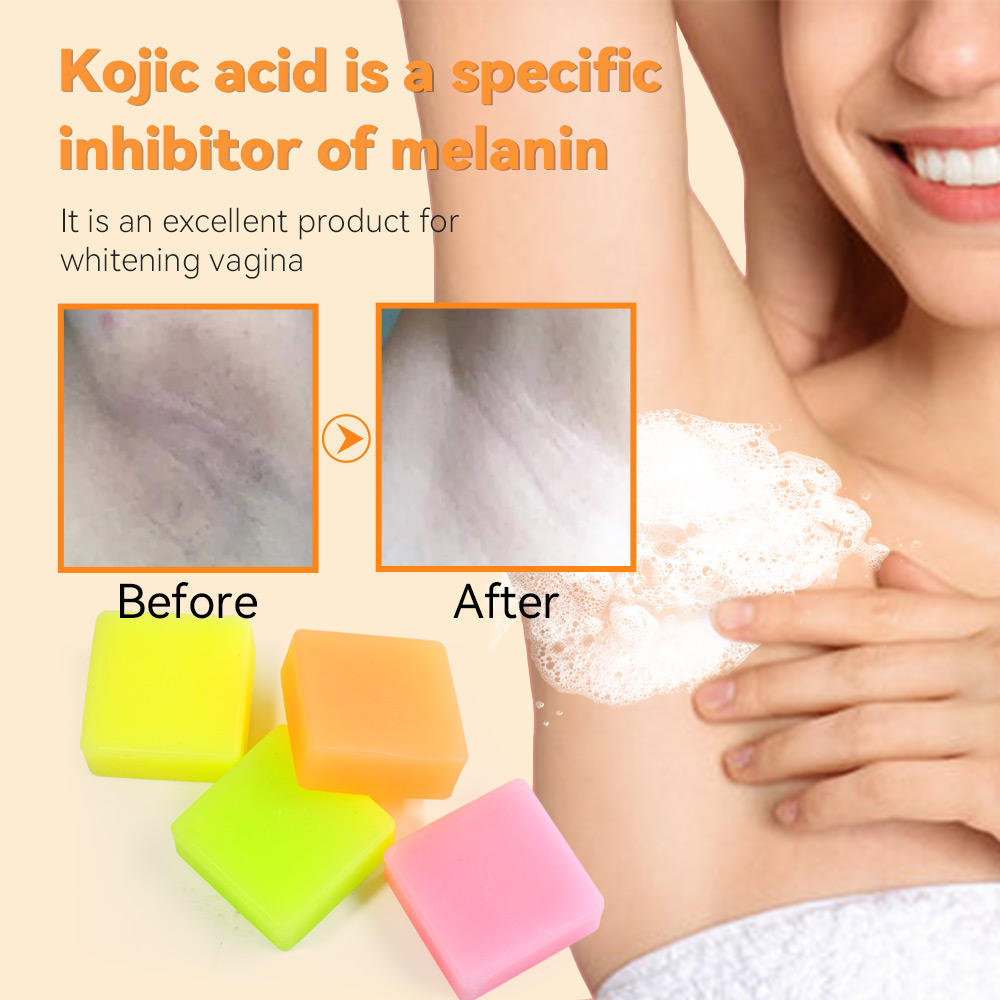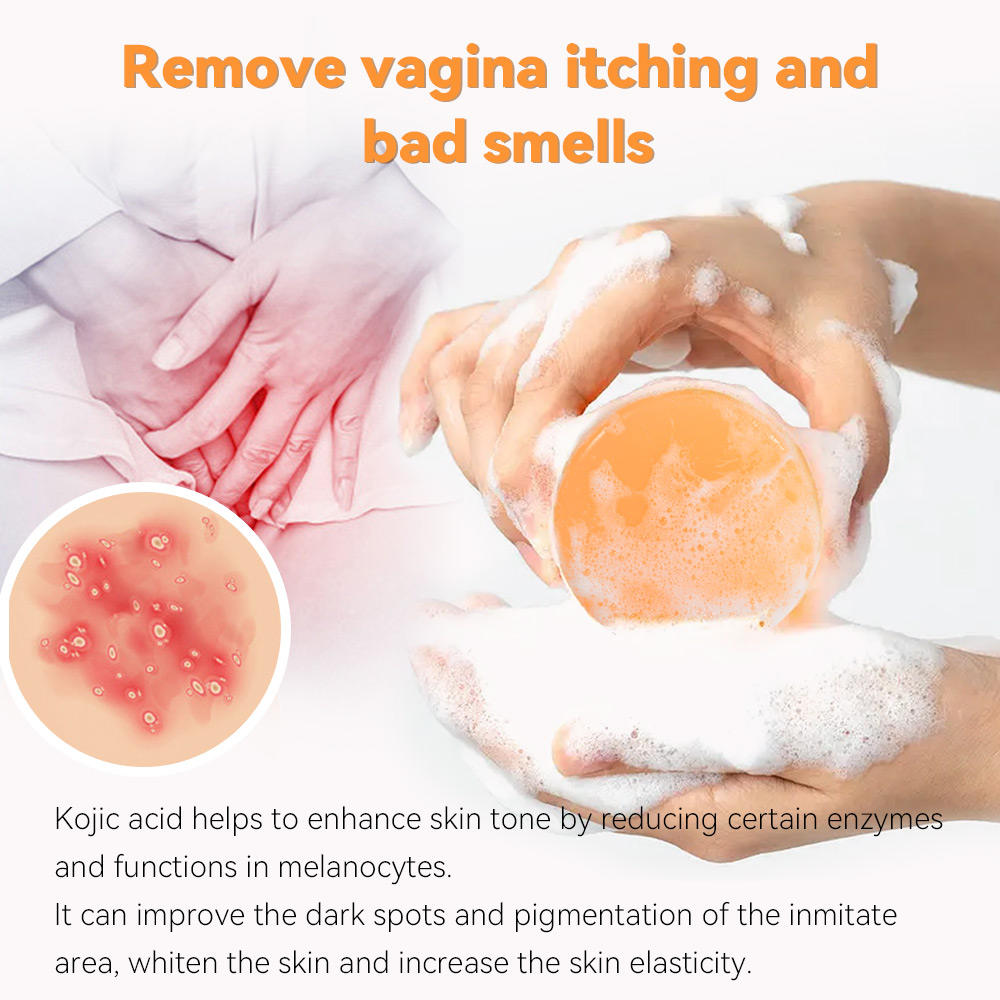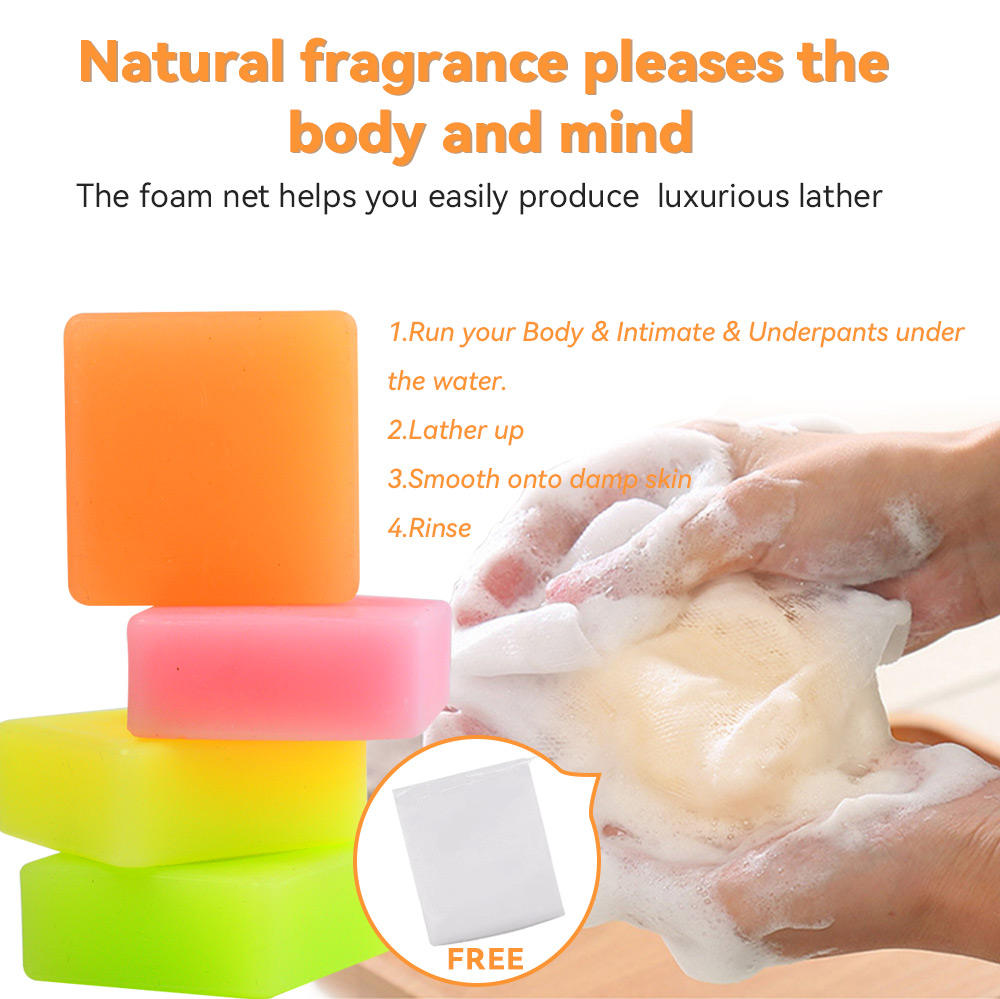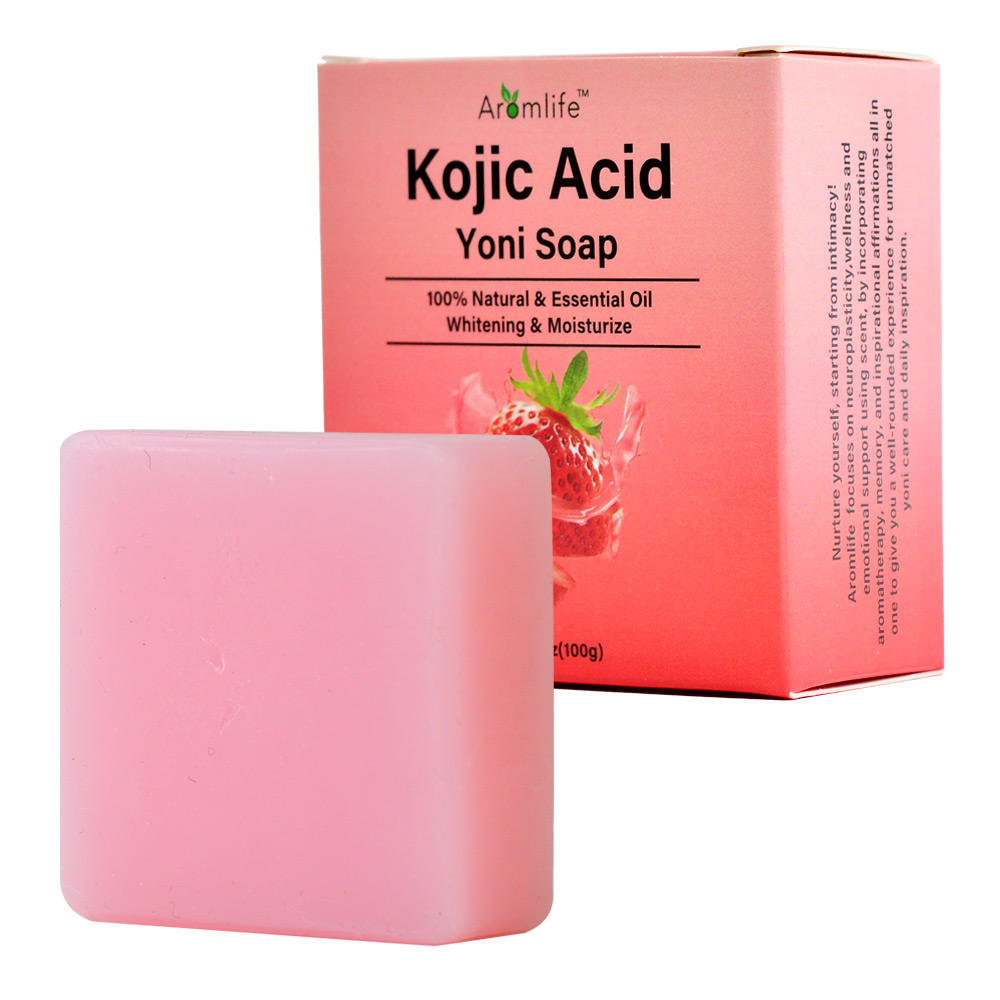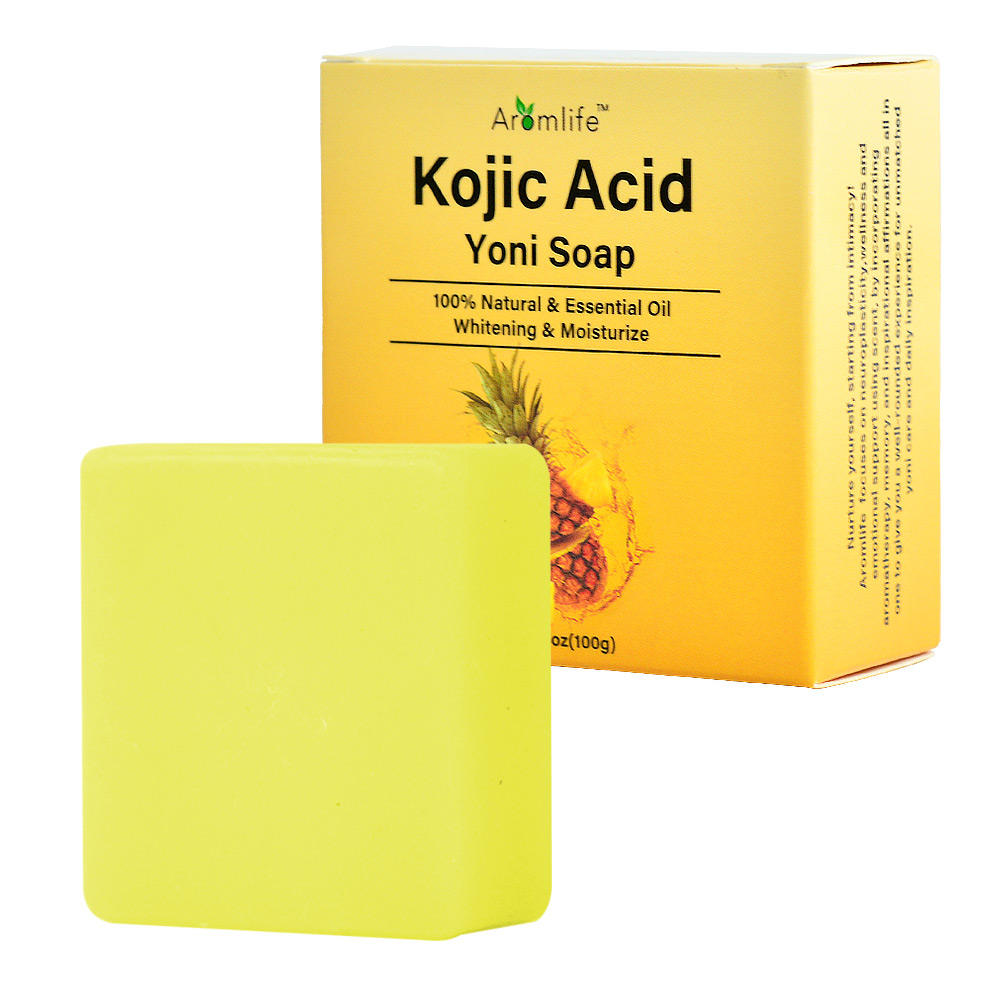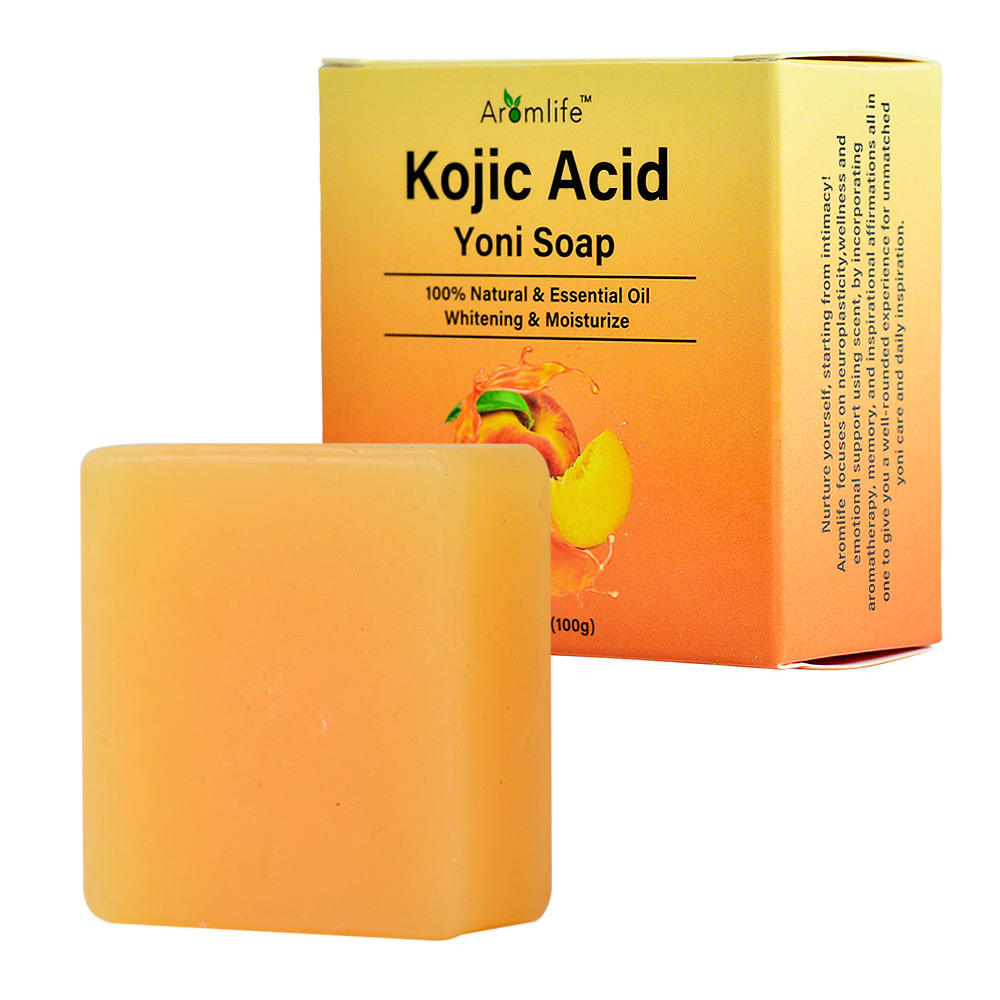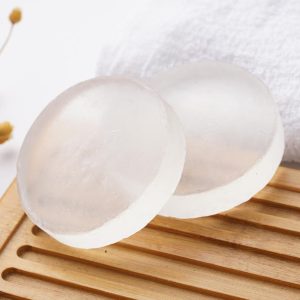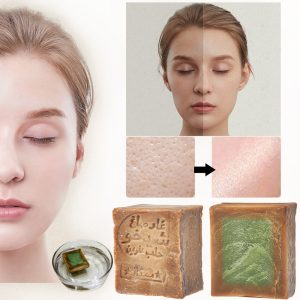Features of natural & organic soap include:
- No Harsh Chemicals: Natural and organic soaps are typically free from harsh synthetic chemicals like sulfates, parabens, phthalates, and artificial fragrances. This makes them less likely to cause skin irritation or allergies.
- Gentle on Skin: These soaps are formulated with natural ingredients that are less likely to strip the skin of its natural oils. This can help maintain the skin’s moisture balance and prevent dryness.
- Biodegradable: Organic soaps are usually made from biodegradable ingredients, which means they break down naturally and don’t harm the environment when they wash down the drain.
- Sustainable Ingredients: These soaps often contain sustainably sourced ingredients, such as organic oils and botanical extracts. Sustainable practices help protect the environment and support fair trade.
It’s important to note that the specific features and benefits of natural and organic soaps can vary depending on the brand and product. Reading ingredient labels and researching brands can help you find the best option for your skin type and personal preferences.
Natural & organic soap offer several advantages, including:
- Environmentally Friendly: Organic soaps are typically made from biodegradable ingredients that break down naturally and do not harm aquatic life or ecosystems when they wash down the drain.
- Healthier Lifestyle Choice: Choosing natural and organic skincare products, including soap, aligns with a healthier and more conscious lifestyle, emphasizing the importance of using products that are good for both your body and the planet.
- Gentle on Skin: Natural and organic soaps typically contain ingredients that are less likely to cause skin irritation or allergies. They are often free from harsh chemicals and synthetic additives that can be harsh on the skin.
- Customization: Some artisanal soap makers allow customers to customize their soap by choosing specific ingredients or scents, catering to individual preferences.
While natural and organic soaps offer these advantages, it’s important to note that individual experiences may vary, and it’s essential to read product labels and do research to find products that align with your specific skincare needs and values.
Customizable aspects of natural & organic soap include:
- Ingredients: Some soap makers allow customers to choose specific ingredients or types of oils used in the soap. For example, you may have the option to select oils like olive oil, coconut oil, shea butter, or others based on your skin’s needs and preferences.
- Fragrance: Customization of fragrance is a common option. You can often choose from a variety of essential oils or natural fragrances to create a scent that suits your preference. This can range from floral scents to herbal or citrusy aromas.
- Color: While natural and organic soaps typically don’t use synthetic dyes, some soap makers use natural colorants like clays, herbs, or spices to add color to their products. You may have the choice to select a specific color or request a soap with no added color.
- Texture or Exfoliants: Depending on your skin type and preferences, you can often request the inclusion of natural exfoliants like oatmeal, poppy seeds, or coffee grounds for added texture and exfoliation in your soap.
- Shape and Size: While most soap bars have a standard shape and size, some soap makers can create custom shapes or sizes upon request. This can be particularly useful for decorative or gift soaps.
- Packaging: Customizable packaging options may include choosing eco-friendly packaging materials, adding personalized labels or messages, or selecting gift packaging for special occasions.
When seeking customizable natural and organic soap options, it’s essential to communicate your preferences and needs clearly with the soap maker or brand to ensure that you receive a product that aligns with your expectations and skincare goals. Additionally, keep in mind that customization options may vary between different producers, so it’s a good idea to explore multiple options to find the one that suits you best.
There are several packaging solutions available for natural & organic soap, including:
- Recyclable Plastic Pouches: When plastic is used, some brands choose recyclable plastic pouches that can be recycled after use. They may also encourage customers to recycle these pouches responsibly.
- Upcycled or Reusable Packaging: Innovative brands may repurpose or upcycle materials for soap packaging, such as reclaimed wood, fabric scraps, or vintage tins, creating unique and environmentally friendly options.
- Glass or Metal Containers: Some high-end organic soap brands offer soap bars in reusable glass or metal containers. These containers can be refilled or repurposed, reducing waste.
- Recycled Plastic or PET Packaging: While not ideal, some natural and organic soap brands use recycled plastic or PET (polyethylene terephthalate) packaging for their products. These materials are often chosen for their durability and ability to be recycled.
- Biodegradable Film Wrappers: Biodegradable film wrappers made from materials like PLA (polylactic acid) or cellulose are an environmentally friendly option. They break down more easily than traditional plastics.
- Cotton or Fabric Pouches: Some soap brands package their products in reusable cotton or fabric pouches. These pouches can serve as a sustainable and functional option, allowing customers to keep soap bars in their bags or bathrooms.
When choosing natural and organic soap products, consumers often appreciate brands that prioritize eco-friendly and sustainable packaging solutions. It’s important to check the specific packaging materials and recycling instructions provided by the brand to ensure that the packaging aligns with your environmental values and practices.
